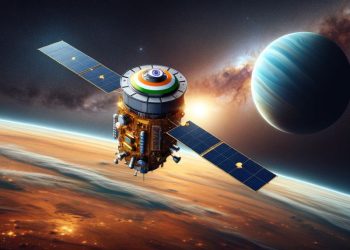This Post Is Recently Updated on Dec 19, 2023 @ 0:07 am by TBB Desk
Awais Ahmed, the CEO of an Indian company called Pixxel, is working on advanced satellite technology known as hyperspectral imaging. This technology is unique because it allows satellites to see things that normal satellites cannot, similar to how every person has a distinct fingerprint, every material or chemical on Earth has a unique “spectral fingerprint” that these satellites can identify.

Hyperspectral satellites have an advantage over regular satellites because they can detect a broader range of light. This capability enables them to gather very detailed information about Earth. They have several important applications, such as identifying diseases in crops early on, detecting harmful gas leaks, and locating valuable minerals underground, which reduces the need for invasive digging.
Ahmed began Pixxel during his college years with a friend. Initially, they received funding from college alumni to build their first satellite, and later, they secured more support and funding from larger sources. Pixxel has grown significantly and now employs a large team. The company collaborates with big corporations and government agencies, helping them to identify environmental issues and monitor Earth.
Ahmed’s ambitions for Pixxel go beyond just observing Earth. He envisions creating a network of these advanced satellites to continuously monitor the planet. Additionally, he aims to expand this technology to map other parts of the solar system in the future.
In essence, Ahmed and Pixxel are leveraging these special satellites to gain deeper insights into our planet and contribute to environmental protection from space.









